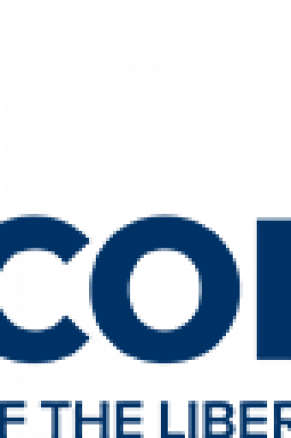Without trade, life more complex than bacteria could not exist. We are literally made of free trade. It is in every cell of our bodies.
The first lifeforms to evolve on Earth, at least 3.5 billion years ago, were very simple. They were single-celled organisms that lacked a nucleus or the organelles we see in more recently evolved organisms. They live on today as archaea and bacteria. But somewhere along the way, possibly as early as 2.7 billion years ago, some of these simple cells discovered specialization and exchange. In other words, trade.
These early entrepreneurs had comparative advantages, like producing energy or providing propulsion. Some of these specialists banded together as a survival tactic. If an energy-producing proto-mitochondria could give up some of its energy in exchange for a proto-flagellum’s help in escaping predators, both benefitted. Both survived, and both reproduced.
Eventually, these mutually beneficial trading relationships became permanent. Members of a trading group enclosed themselves inside a common membrane, which itself specialized in protection and chemical balancing.
These early traders became the first eukaryotic cells. All life more complex than bacteria descends from these entrepreneurs. The word “eukaryotic” comes from the Greek words for “good” and “seed,” referring to the nucleus that housed some of the specialists, now called organelles.
Their archaean and bacterial ancestors are prokaryotic cells, or “before seed,” referring to their lack of nucleus and organelles.
We can tell that many modern organelles used to be separate organisms because they have their own membranes, and several have their own DNA. Scientists can use mitochondrial DNA, for example, to trace matrilineal descent in humans. Chloroplasts, which can produce energy via photosynthesis, have their own DNA as well. RNA and DNA have their own origin stories.
If someone was designing a cell from scratch, they probably wouldn’t have come up with such a disorganized system of genetic storage. But if a bunch of traders spontaneously came together over time to specialize, exchange, and survive, this kludge model makes perfect sense.
The benefits for these early specialists allowed them to further specialize in ways prokaryotic cells still have not, billions of years later. A modern mitochondria, for example, can generate 15,000 times as much energy as a typical prokaryotic bacterium. That provides the cell’s other specialists more energy for accomplishing their own amazing feats, to the benefit of all.
Without each organelle’s own specialized services, from hydration to chemical transport to reproduction, mitochondria would likely not be able to specialize so intensely at its task. Like human trade, this is win-win.
Eventually, single-celled eukaryotes discovered a whole new level of trade. Just as organelles benefited by trading with each other inside one cell, so can entire cells benefit from trading with other entire cells. This is how multicellular organisms emerged.
In a way, this was the first international trade, between different groups of organisms.
Multicellularity was an amazing innovation. While there are multicellular prokaryotes such as cyanobacteria, it took eukaryotes for multicellularity to really take off. Before long, algae, slime molds, and fungi evolved, and then plants and animals.
If some ancient prokaryotic protectionist had been able to stop this process with the bacterial equivalent of tariffs, life as we know it would have evolved much more slowly, or possibly not at all.
The next step of evolution required yet another level of trade. Groups of cells found that they could better survive by specializing in one task and exchanging services with other cell groups specializing in something else. This is where organs come from.
This innovation allowed plants and animals to emerge, with distinct cell types that specialize as roots, leaves, lungs, bones, and even brains that would one day think about trade.
At this level, specialization is so intense that no organ-size cell group could survive on its own. A brain cannot exist outside its body. It depends on the other organs to survive, just as they depend on it. They each specialize, exchange, and survive, just as the previous levels did, but at a larger scale than ever seen before.
Now we move up yet another level of trade, between different species. Scientists call this symbiosis. Bees and plants trade with each other, with plants providing food and bees providing pollination services. Cleaner fish provide parasite removal services for other fish species, who queue up to get cleaned. These other fish species get a better quality of life and better survival odds in exchange for giving the cleaner fish a free meal, and for not eating the cleaner fish.
Once humans emerged, we invented several new levels of trade. Individual humans traded with each other within their tribe, and with humans in other tribes. The specialization and productivity this enabled eventually allowed for villages, cities, states, nations, and even empires. Over millennia, people eventually developed a deep enough division of labor and the technology to trade with each other around the world, when they are allowed to.
It is amazing to think that all these levels of trade are operating simultaneously. Every cell in your body, right now, two trillion of them, is engaging in internal trade among their organelles. Each of these cells is part of an organ or body part that is itself a specialist.
All of these specialists work together to form an individual person with a single consciousness and free will. This person in turn specializes in certain tasks, such as writing essays about trade, which it then exchanges with specialists in other areas.
Biological evolution and social evolution are tightly intertwined in what might be the world’s most intricate dance. It is all made possible by trade, from the microscopic level to the global level. Trade doesn’t just make possible modern prosperity. It makes possible life as we know it. If any one of those levels of trade were to cease, most life on Earth would cease.
It is worth taking some time to ponder what this deep heritage of trade means for today’s tariff debate. President Trump’s tariff war could spark a recession or worse, if it hasn’t already. Just as prokaryotic cells still survive today, so would a protectionist America. But prokaryotes haven’t changed much in three billion years. Similarly, a protectionist world’s growth and dynamism would slow.
Liberalism’s greatest achievement, the post-1800 Great Enrichment that is still continuing today, is at risk if Trump’s trade war escalates.
A more evolved trade policy has guided life from the first eukaryotic cell on up to Adam Smith and Charles Darwin, who themselves were two highly sophisticated trading blocs of eukaryotic cells. The growth in human trade from their time to ours resulted in the greatest improvement in living standards in our species’ history.
Darwin was influenced by Adam Smith’s Theory of Moral Sentiments, in an act of intergenerational trade. Smith gained immortality through print, and Darwin gained insights he could apply to his own ideas. This is yet another level of trade to explore.
If you think trade does more harm than good, you’re up against more than just the laws of economics. You’re up against evolution itself and, measured in biomass, the majority of life on Earth.
Ryan Young is senior economist at the Competitive Enterprise Institute.
(0 COMMENTS)




